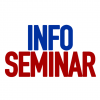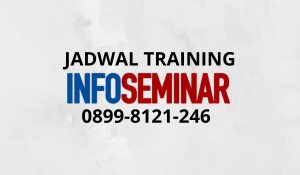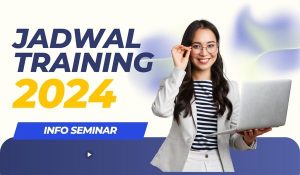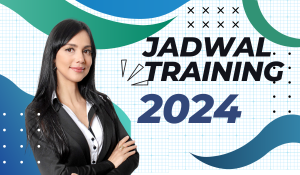Training Reliability Centered Maintenance (RCM)
Tanggal
9 – 11 January 2013
4 – 6 March 2013
24 – 26 April 2013
19 – 21 June 2013
4 – 6 September 2013
30 October – 1 November 2013
18 – 20 December 2013
Tempat
Hotel Kagum Group Bandung (Golden Flower, Banana Inn, Grand Seriti, Carrcadin, Amaroossa, Grand Serela, Gino Feruci, Verona Palace, Malaka, Zodiac Taurus)
TRAINING INTRODUCTION :
This course is beneficial especially for continuous process industry and utilizes sophisticate and expensive production equipment, such as: Oil and Gas Industry, Electricity Plant, Petrochemical Plant, Marine Industry, Manufacturing, Automotive, Assembling Industry, Aviation, Construction, Pulp and Paper, Mining, etc. The course is designed by considering the need of maintenance method that reliable to ensure the success of production, a method of maintenance to push downs a break down or unplanned disturbance. The requirement of efficient and effective method of maintenance becomes more important when plant facility is automatic system. The big loss can come, if it is late to improve maintenance operation system, low productivity, wasting working hours, last production, engine big failure, and in-harmony relation with customer, successful.
TRAINING OBJECTIVES :
a. To understand the Reliability-Centered Maintenance (RCM) as basic of maintenance management implementation or as an aid-tool for cost management and as part of project management.
b. To understand maintenance philosophy based an the third generation of previous maintenance generation i.e.: first generation (breakdown maintenance) and second generation (preventive maintenance)
c. To avoid total failure by knowing what kind of failure will happen.
d. To understand root cause mechanism of failure
e. To minimize maintenance cost and operate the equipment until maximum capacity
f. To increase output and improve productivity of existing facility
g. To get plant equipment, reliable, effective and efficient
TRAINING MATERIAL OUTLINE :
1. What is Reliability-Centered Maintenance (RCM)?
a. Fundamental change of maintenance philosophy
b. Maintenance and RCM
c. Basic idea of RCM
d. RCM implementation
e. RCM achievement
2. Plant Registration
a. What is Plant Registration?
b. What is equipment?
c. How to number the asset?
d. What kind of information has to be registered?
e. How to compile plant registration?
3. Function and Failure
a. Function and standard performance
b. Malfunction
c. Failure mode
d. Failure effects
e. Failure Consequences
f. Hidden failure consequent
g. Safety and environment consequent
h. Operational consequent
i. Summary
4. Preventive Actions
a. Engineering feasibility
b. Life time dependable failure
c. Scheduled restoration
d. Scheduled replacement
e. Life time undependable failure
f. Scheduled condition monitoring
g. Selection of preventive actions
5. Defaults Actions
a. Scheduled efforts to find failure
b. Non Scheduled maintenance
c. Re-designing
d. Lubrication
e. Zone inspection and walk-around check
6. RCM Decision Diagram
a. Effort and consequent integration
b. RCM decision making process
c. Filling out decision sheet
7. Plan, Organize and Control Proposed Tasks
a. Task grouping
b. Planning system and maintenance control
c. Failure report
d. Various Failure and its History
e. Failure process
f. Six failure patterns
g. Historical data
8. RCM Implementation
a. Who knows?
b. Pre-review RCM group
c. Facilitator and auditor
d. Implementation strategy
e. Short term approach
f. RCM Forever
9. Build skill in RCM
a. What is RCM Achievement?
b. Result of RCM analysis
c. Benefit of RCM
d. Why RCM?
10. RCM History
a. Airline enterprise experience
b. RCM at other industry
11. Case Study
WHO SHOULD ATTEND THIS TRAINING?
The following selected participants should attend this course:
- Maintenance Engineer/ Superintendent/ Supervisor
- Rotating Engineer/ Superintendent/Supervisor
- Power Plant Engineer/Superintendent /Supervisor
- Manufacturing Manager
- Everybody who wants to broaden knowledge and interest in this topics
TRAINING DURATION : 3 days
INVESTATION PRICE/PERSON :
1. Rp 5.950.000/person (full fare) or
2. Rp 5.750.000/person (early bird, payment 1 week before training) or
3. Rp 5.500.000/person (if there are 3 persons or more from the same company)
FACILITIES FOR PARTICIPANTS:
1. Training Module
2. Flash Disk contains training material
3. Certificate
4. Stationeries: NoteBook and Ballpoint
5. T-Shirt
6. Backpack
7. Training Photo
8. Training room with Full AC facilities and multimedia
9. Lunch and twice coffeebreak every day of training
10. Qualified Instructor
11. Transportation for participants from hotel of participants to/from hotel of training – VV (if minimal participants is 4 persons from the same company)
TRAINING INSTRUCTOR
Ir. Deddy Nugraha is a dedicated experienced fulltime trainer and technical consultant since 2002. He holds a B.S. degree in Mechanical Engineering from ITB, Bandung. He has worked nationally in a wide variety of industries including: technology, aerospace, utilities, auditing, mining and institutions thus engaged as a corporate consultant. He also holds certifications for those particular fields from Snecma, France; Engine Support Inc., USA; Danobat, Spain; DNV, Singapore; MTU, Germany and FAA Auditor, USA. Mr. Nugraha is a member of Indonesian Society for Reliability and was elected as General Sectretay for 2004-2007 period. He has trained hundreds of managers, engineers and floor associates, subjects taught to include; CMMS, RCM, TPM, Project Management, Quality Process Control, Corrosion Control and Protection, Failure Analysis, Engineering Design, Instalation & Constrcution, Inventory Control and Management. Major clients include: Pertamina, British Petroleum, Petrochina, Siemen Power, PT. Indonesia Power, PT. Krakatau Steel, Freeport Indonesia, PT. Surveyor Indonesia, Chevron, Medco Energy, PT. Aneka Tambang, Garuda Maintenance Facility, PT. Perusahaan Gas Negara, PT. Semen Padang, PT. Semen Gresik, PT. Indah Kiat Pulp & Paper, PT. Tjiwi Kimia, PT. Pupuk Kujang and PT. Kaltim Prima Coal.








